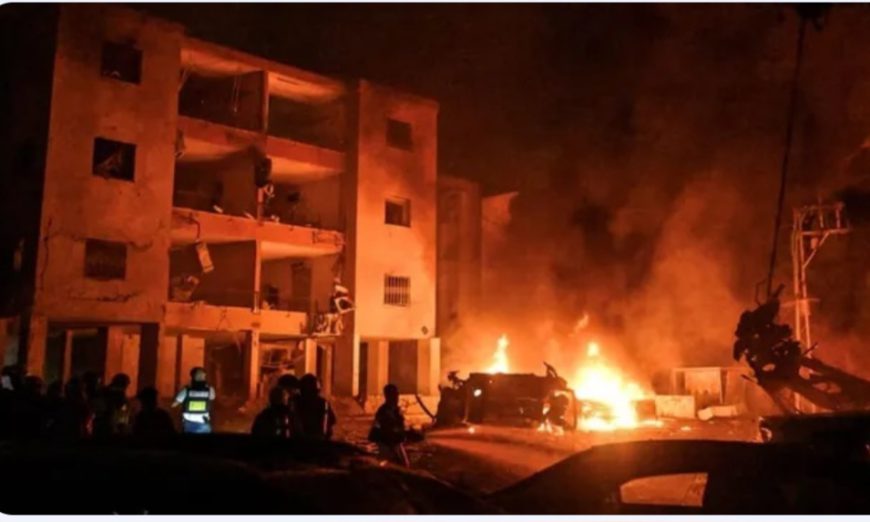The Iran-Israel conflict entered its fourth day today with both nations intensifying their military campaigns as civilian casualties continued to mount on both sides. What began as Israeli preemptive strikes, has escalated into a sustained exchange of missile barrages and airstrikes that shows no signs of abating.
Iran’s Health Ministry reported that at least 224 people have died since fighting erupted on Friday, the majority of whom were civilians who were caught up in Israeli air strikes on military targets and infrastructure. Israeli fatalities now total more than 20, with over 300 wounded as the conflict burns to its most intense level yet. Iranian forces launched a new wave of missile and drone strikes at Israeli civilian targets last night and into Monday .
The strike targeted Tel Aviv, Haifa, and Petah Tikva, killing at least eight Israelis and injuring dozens more. Israel responded with repeated air raids on Iranian military, nuclear, and energy sites all through Monday.
The Israeli Air Force demonstrated what Prime Minister Benjamin Netanyahu described as having achieved complete operational freedom over Iranian airspace, conducting deep strikes inside Iranian territory including the capital city of Tehran. Israeli forces targeted command centers like the Quds Force belonging to the Islamic Revolutionary Guard Corps , the elite unit responsible for Iran’s regional proxy campaigns.
The Israel Defense Forces reported significant tactical advances, announcing that they had destroyed more than 120 of Iran’s missile launchers in the four-day war, which is roughly one-third of Iran’s stockpile.
Israeli forces also intercepted weapons shipments, hitting several trucks carrying Iranian military equipment including surface-to-air missile launchers moving west toward Tehran on Monday morning. These strikes demonstrated Israel’s expanding operational reach as the conflict broadened beyond initial targets.
On Sunday evening alone, Israeli aircraft destroyed more than 20 surface-to-surface missiles before they could be launched toward Israeli territory. Military officials said around 50 fighter jets and aircraft were deployed to strike approximately 100 military targets in Isfahan, central Iran.
Both nations’ leaders have issued increasingly defiant statements, signaling their intention to escalate rather than seek immediate de-escalation. Israel’s Defense Minister warned that Tehran’s population would ‘pay the price’ for continued attacks, while Iran’s president called for national unity against what he termed ‘genocidal aggression’ by Israeli forces.
The international community’s concern has grown dramatically as the conflict threatens regional stability. The G7 summit currently underway in Canada has placed the Iran-Israel confrontation high on its agenda, with world leaders expressing alarm about the potential for a broader West Asian war.
However, diplomatic efforts have stalled as Iran refuses to engage in talks while under active military attack. Nuclear concerns have added another layer of complexity to the crisis. International Atomic Energy Agency Chief Rafael Grossi confirmed that no damage has been observed at Iran’s Fordow fuel enrichment plant or the Khondab heavy water reactor construction site, despite Israeli strikes targeting nuclear facilities.
However, Iranian parliamentarians are reportedly preparing legislation that could push Tehran toward exiting the Nuclear Non-Proliferation Treaty, a move that would dramatically escalate nuclear tensions.Russia has offered mediation services to resolve the conflict, though neither Iran nor Israel has indicated willingness to accept third-party intervention at this stage.

